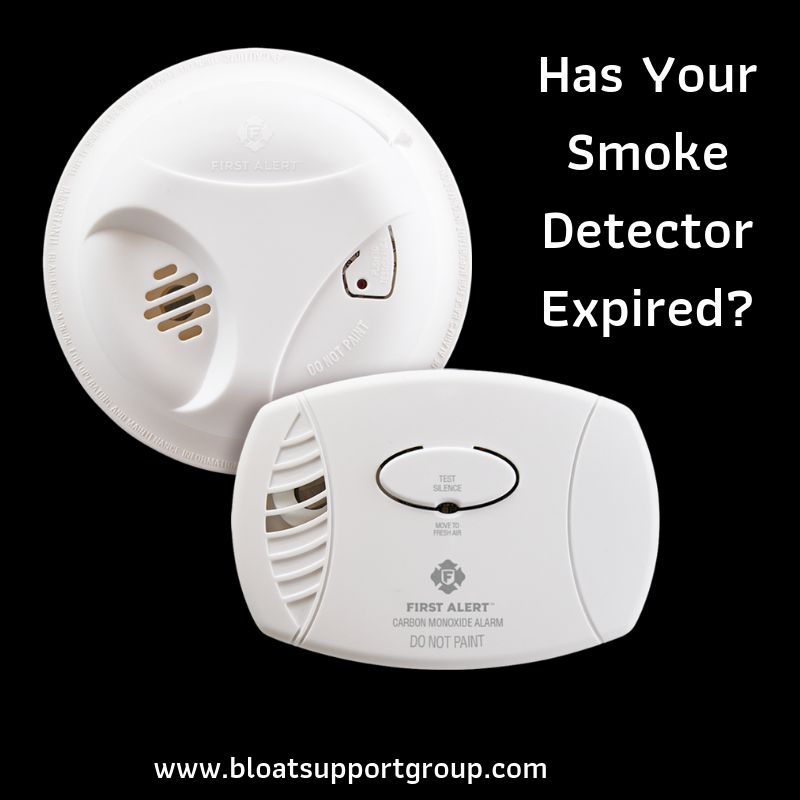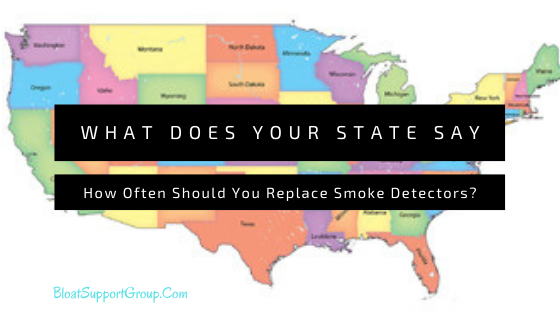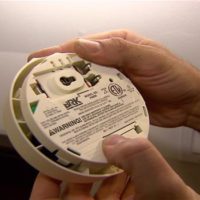Today I will be answering the big question: Exactly how long does a smoke detector last?
NFPA has done a study that has revealed shocking statistics!
Only a few of United States residential occupiers know the expiry date of their smoke alarms! I will show you the statistics numbers shortly.

In the first place, it is possible to have old smoke detectors. Consequently, they have increased nuisance alarms / beeping and reduced probability of detecting visible or invisible particles of fire. This is a huge risk to have at home.
Over the last few years, there has been intensified adoption of various methods to prevent fire starting and spreading at homes. Not only does it range from emphasis on construction materials but also the use of smoke alarms among others, all aimed at reducing the impact of fire hazards in residential occupancy.
Residential smoke detectors have been very instrumental over the last 40 years in saving lives. Equally important, there has been a metamorphosis of smoke alarm technology and a great improvement on accuracy, reliability and feature enrichment. No doubt about that.
Here is the real thing though. All smoke detectors have an expiry date. Do you know how old your smoke detector is?
A smoke detector that is past the recommended useful life is a big risk to you, your family and property. Because there is no guarantee that it will work. Not to mention, chances are very high that it may fail to work in the unfortunate event of a fire in the home. Obviously, this is not what we want.
Now lets get straight to the answer.
Contents
How Long are Smoke Detectors Good for ?
Most smoke detectors have a life expectancy of 5 to 10 years. In particular, the older versions stay for 5 years and in like manner the current generation of smoke alarms last up to 10 years. The NFPA strongly recommends replacement of smoke detectors must be done at least every ten years.

At this instance, if you need to know the expiry date for your smoke alarm, you will need to check the manufacturing date of your smoke alarm at the back of your detector. From there, you can calculate how long it has lasted.
For anything above 10 years the next action is immediate replacement. If you do not find the date at the back of the smoke detector, you may have to open inside and look for a sticker or code indicating the date of manufacture.
A common mistake or assumption that people make is to calculate the expiry date from the date of purchase. Important to realize, a smoke detector useful life has to be from the date it was manufactured.
Important to remember, the new generation of smoke alarms has an inbuilt signaling alarm to let you know when the expiry date is drawing near.
How Often Should Smoke Detectors Be Replaced?
The key to having working smoke alarms in your house is to schedule monthly tests and replacing batteries promptly for the battery-operated smoke detectors. Nevertheless, hard wired smoke detectors and lithium battery powered alarms do not require the annual battery replacement. They can therefore serve you for 10 years if they remain functional (all other factors held constant).
After 10 years, you must replace the units. To test your smoke detector, press the test button and the alarm should go off. In addition, annual maintenance that includes cleaning and vacuuming to remove accumulated dust and cob webs may be necessary and can improve the usefulness period of you smoke alarms.

To clarify, the other most suitable time to replace your smoke detector is when they fail functionality test even before the ten years are over.
You can also do it in favor of additional features currently in the market such as dual sensor detectors location talking smoke detectors, cool stylish designs or wireless smoke detectors. A smoke detector with ten-year battery, should be replaced if the detector chirps with low battery alarms.
According to NFPA, more than 60 per cent of deaths caused by home fires occurred in a home with no smoke detector or a nonfunctional smoke detector. After 10 years, the sensor that should detect smoke or flame particles deteriorates with time. Consequently, current manufacturers cannot guarantee the ability of this sensor to work after ten years.
In another study done by NFPA, it was discovered that 20 per cent of American homes have smoke alarms older than ten years. Another 20 per cent are not sure about the age of their smoke detectors and even more shockingly, 90 percent did not seem to know about the 10 years rule of thumb when it comes to replacing smoke detectors.
What Does Your State Say; How Often To Replace Smoke Detectors?

Different states have responded diversely to this information. For instance, New York state has legislated a new law that requires vendors to strictly sell smoke detectors with an expiry of 10 years and should have no need of battery replacement before cessation.
Having non-removable batteries is an advantage because it discourages tendencies of people removing them for whatever reason and failing to return them.
Surprisingly, several people have admitted to removing smoke alarm batteries to prevent nuisance alarms while cooking or to use the batteries in other items e.g. TV remotes, toys, wireless mouse. This behavior creates a dangerous environment where there is no early warning in case of fire.
From time to time, officials from the fire departments and other organizations such as the red cross make door to door campaigns to spread the awareness and importance of having a working smoke detector. Awareness campaigns and social education are seen to play a major role towards behavior change on this important subject. More lobbying is required to keep our citizens safe.
What is the Difference between Smoke Alarms & Detectors?
An important factor to consider is the difference between smoke alarms and smoke detectors. The requirement for each is not the same. NFPA code 72 places a requirement on smoke alarms to be replaced after ten years and not smoke detectors.
If you don’t mind you can listen to the following webinar discussing NFPA72 (residential smoke detection requirements)
The sensitivity of the sensing components deteriorates with time. A basic way to distinguish the two: smoke alarms is the complete unit including the sensing unit and the sounding unit while smoke detector only refers to the sensing unit. Conversationally, the two words are interchangeable.
Finally, please remember there are combinational smoke alarms that have an additional carbon monoxide detector. These alarms fall in a different category and hence the ten year rule does not apply here.
Check the recommended replacement time with your manufacturer. Because of the carbon monoxide sensor the time is usually shorter than ten years and may be five to seven years.
How Long Do Carbon Monoxide Detectors Last?
We keep on getting this question, “ how long does a carbon monoxide detector last ”?
It would usually be indicated on the detector itself at the back cover (just like smoke detectors). Usually the time would be 5 years to 7 years.
Conclusion
All things considered, if you have checked the expiry date of your smoke detector or you have no idea when they were installed, we recommend that you replace them immediately. We have done an in-depth review of wireless smoke detectors that communicate with each other which we encourage you have a look at. Also check our article on best hard wired smoke detectors for a broad perspective in your search.
